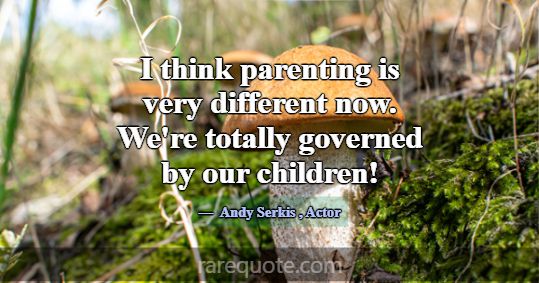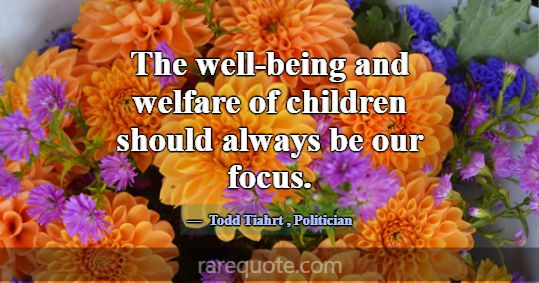Inspirational Parenting Quotes for Nurturing and Empowering Children - Page 4
Although the person does not desire to have children, they show an interest in learning about parenting through reading.

The person believes that parenting has undergone significant changes, and parents feel controlled or heavily influenced by their children. They perceive a shift in power dynamics where children have a greater influence on decision-making and parental choices.
The person holds the belief that there is a connection or spiritual bond between unborn babies and their future parents. They perceive that the coming together of specific individuals as parents and child is a purposeful and meaningful occurrence.
The speaker acknowledges that parenting is challenging and demanding. It requires emotional, physical, and mental effort to fulfill the responsibilities and meet the needs of children.
The person intended to write a book that challenges or critiques traditional parenting approaches.
The experience of parenting has positive impacts and helps individuals improve in various aspects of life.
The statement suggests that teaching and imparting knowledge, values, and life skills are fundamental aspects of the parent-child relationship. Parents play a vital role in guiding and educating their children, shaping their beliefs, behavior, and development.
Christians have opinions and perspectives on a wide range of topics, including both political issues and parenting.
The statement criticizes the tendency of some individuals to prioritize parenting low on their list of responsibilities or tasks. It highlights the importance of giving parenting the attention, time, and effort it deserves rather than treating it as a secondary or less important commitment.
The statement emphasizes the paramount importance of prioritizing the well-being and overall welfare of children. It suggests that children's needs, safety, happiness, and development should be at the forefront of parenting decisions, actions, and intentions.
Popular Topic
- Age
- Alone
- Amazing
- Anger
- Anniversary
- Architecture
- Art
- Attitude
- Beauty
- Best
- Birthday
- Brainy
- Business
- Car
- Chance
- Change
- Christmas
- Communication
- Computers
- Cool
- Courage
- Dad
- Dating
- Death
- Design
- Diet
- Dreams
- Easter
- Education
- Environmental
- Equality
- Experience
- Failure
- Faith
- Family
- Famous
- Father's Day
- Fear
- Finance
- Fitness
- Food
- Forgiveness
- Freedom
- Friendship
- Funny
- Future
- Gardening
- God
- Good
- Government
- Graduation
- Great
- Happiness
- Health
- History
- Home
- Hope
- Humor
- Imagination
- Independence
- Inspirational
- Intelligence
- Jealousy
- Knowledge
- Leadership
- Learning
- Legal
- Life
- Love
- Marriage
- Medical
- Memorial Day
- Men
- Mom
- Money
- Morning
- Mother's Day
- Motivational
- Movies
- Moving On
- Music
- Nature
- New Year's
- Parenting
- Patience
- Patriotism
- Peace
- Pet
- Poetry
- Politics
- Positive
- Power
- Relationship
- Religion
- Respect
- Romantic
- Sad
- Saint Patrick's Day
- Science
- Smile
- Society
- Space
- Sports
- Strength
- Success
- Sympathy
- Teacher
- Technology
- Teen
- Thankful
- Thanksgiving
- Time
- Travel
- Trust
- Truth
- Valentine's Day
- Veterans Day
- War
- Wedding
- Wisdom
- Women
- Work










